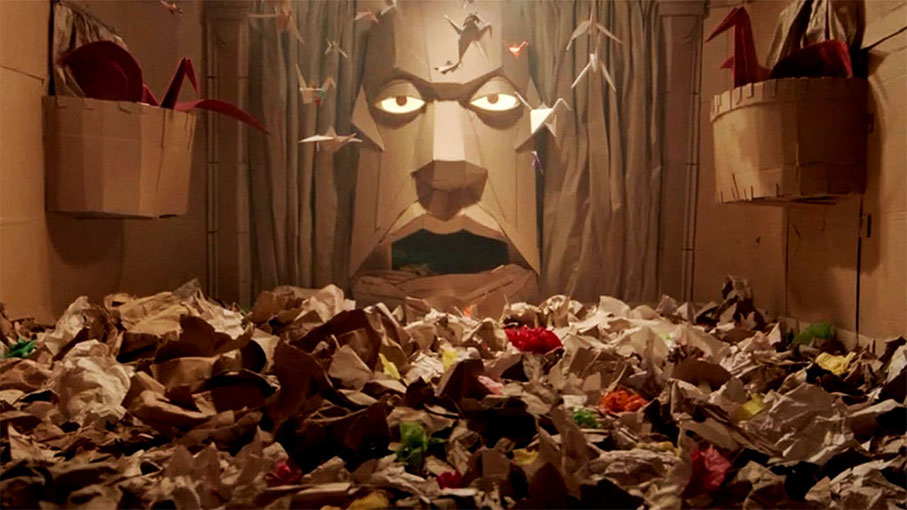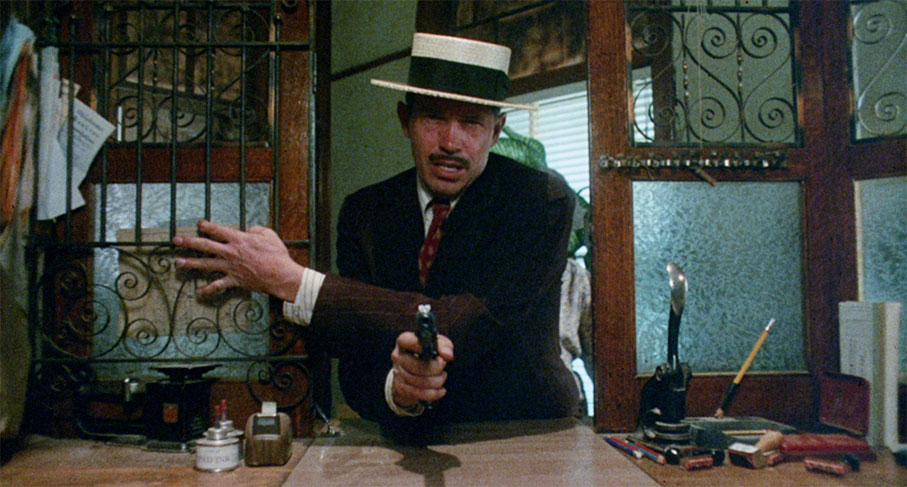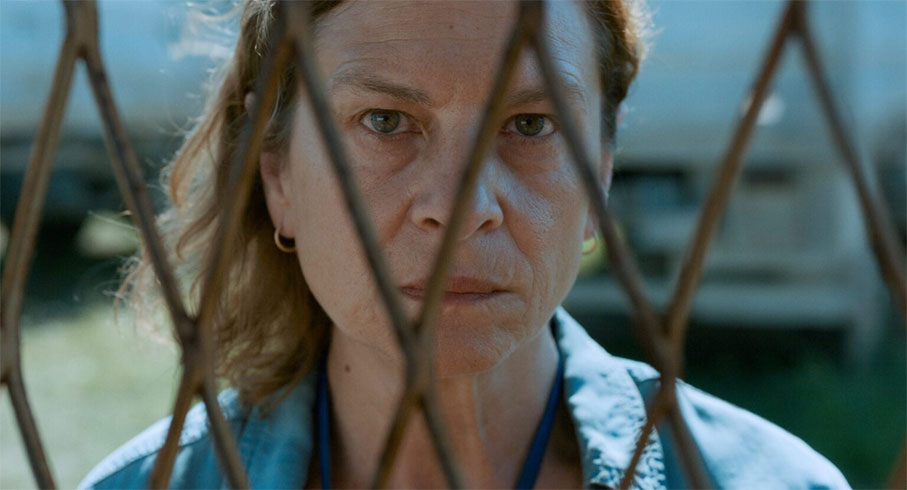It's been an age since I posted a blog on the site. Seriously, the last one was in November 2020, for pity's sake. Then again, it's been a long time since I've had the time or the energy. As I suggested in my rant-peppered end-of-year round-up, a combination of age, extended periods of isolation, this seemingly never-ending pandemic, and my increasing horror and depression at the mess this country has got itself into, has had the cumulative effect of grinding me down. I naively once proposed that I would post a new blog every weekend, but this quickly fell foul to my increasing weariness and the sudden explosions of unexpected work and mad deadlines that are a key component of my day job. It all contributed to the downbeat tone of that last annual review, and doubtless helped to paint me as the miserable old git that I sometimes suspect I have become, or at least am in the process of metamorphosing into.
So, after committing my unhappiness to that ream of disposable electronic text, I made the decision to take a more positive approach to the things that matter to me and that I have some influence over in 2022. I started, as you might expect, with movies and discs, and a concerted attempt to revive the sort of viewing schedule that had previously set before 2021's mid-year downslide. My original one-film-a-day target was reinstated, and although it's not always been possible to hit, I'm getting close. If a rush design or video job comes in (oh, you should see the one that's just landed on my desk – do none of these people know how to write a coherent brief?) and I have to work late, then the evening's planned movie time often gets postponed. That can't be helped, although sometimes I'll make it up again at the weekend. I still lack the confidence and physical pain relief required to return to cinemas, but now I have my lovely big screen OLED TV and my 7.1 surround system (currently firing on 5.1 only until I get the final two speakers), I'm really enjoying watching movies at home instead. This does restrict me primarily to disc releases, films that have completed their cinema run, or works that are funded by one of the two streaming services that I currently subscribe to. I'm aware that some films receive simultaneous streaming and cinema releases, but budget constraints make the often pricey rental cost hard for me to justify at present. Have you seen the projections for the upcoming energy price rises?
And so to my reviews, the pace of which I'm aiming to up a bit and hit a few more of the release dates than I manedd to in 2021. As things currently stand, Camus and I have split the next four discs from Indicator between us, with Camus taking on Voices and The Devil's Men, while I'll be handling Bartleby and Christ Petit's An Unsuitable Job for a Woman. Camus will also be covering The Gentle Gunman for StudioCanal, while I've agreed to review three releases from Anti-Worlds, the first of which is almost complete and should be posted tomorrow evening. After this, I'll be covering Jan Nemic's remarkable The Party and the Guests [O slavnosti a hostech] for Second Run. It's a substantial disc with two commentary tracks, a booklet and a short film, and is a tricky one to write about without simply echoing the astute observations of a good many more learned others. Gary, meanwhile, after a release-free January, should be back soon with a review of an Australian Blu-ray release of one of my favourite films and the discs from the BFI's February release slate. I can make time, I'm hoping to help out with coverage of the 4K release of John Hillcoat's The Proposition, though I gather this has now been postponed until March. Frustratingly, I still have no way of getting screen grabs from 4K discs, and as far as I'm aware there's nothing Mac-based on the horizon.
Given my broken promises of the past, I'm wary of pledging to post more regular blogs now that I've restarted them, but will make an effort to do so and to vary the content a little in the manner of the earlier entries. But to round off this one and kick February into gear, I thought I'd have a quick look back at some of the films I watched for the first time or revisited last month. Don't judge me on these. Oh, go ahead. I probably would, but I should that there's one evening each week when my partner gets to choose what we watch, and only in extreme circumstances do I get to veto that decision. Anyway, here they are, and to break with the alphabetical norm, I'll list them roughly in the order they were seen. Links are provided to full reviews, where appropriate, and will be updated wihen incomplete reviews are posted.

DAVE MADE A MAZE
A woman returns to her apartment after a couple of days away to find her partner has built and become trapped in a cardboard maze, one whose vast and complex interior is infinitely larger than its compact exterior suggests. The very definition of offbeat, actor Bill Watterson's directorial debut is a fun, imaginative, engagingly performed, and enjoyably daffy twist of the concept of the mythological quest. This one's available on Arrow Blu-ray, which I fancy picking up for the special features alone.
HOFFMAN
Peter Sellers excels as a middle-aged company manager who blackmails a young female workplace subordinate, superbly played by Sineád Cuscak, whom he blackmails into spending a week at his apartment bowing to his every whim. A discomforting set-up is made all the more so by Sellers' initial creepiness as the titular Hoffman and Cusack's tangible fear and vulnerability as the young woman he desires. I've covered this one in more detail in my review of Indicator's Blu-ray release here.
IN THE TALL GRASS (partner's choice)
A Netflix production from a novella by Stephen King and his son Joe, In the Tall Grass is another twist on the now-familiar horror trope that has convinced us all that those vast American fields of tall grass or corn are home to sinister forces. Here, a brother and sister who have stopped by the roadside are lured inside such a field by a child's cries for help and find they cannot escape, then meet others who have been there for even longer. Not great, but not bad, though I have to admit to preferring Tom Mattera and David Mazzoni's similarly themed The Fields (2011). Onibaba it's not. My partner really liked it, however, and hasn't stopped talking about it since.
GIRL STROKE BOY
Directorially a tad wobbly in places, but still a bold and forward-looking British transgender-themed drama from 1971 with a top-notch cast and strong performances. Full review of the Indicator Blu-ray here.
WEREWOLVES WITHIN
A rather fun werewolf take on the "who's the monster?" formula from actor-turned-director Josh Rubin and writer Mishna Wolff, whose surname suggests that she was one day destined to write such a movie. An engagingly quirky cast has fun with a script that simultaneously celebrates and sets up genre tropes, but the sound mix left me struggling to hear some of the dialogue at times. It's probably just me (I have raging tinnitus and am partially deaf in one ear), but in my defence this is only the only film I've struggled with in this manner for a long time. Definitely worth a look for genre fans, though.

DILLINGER
The 1973 directorial debut feature from John Milius may owe a visible debt to Bonnie and Clyde, but it's still a cracking old-school gangster movie in its own right. Warren Oates is perfect casting as the titular John Dillinger (he's also a dead ringer for the man himself), while Ben Johnson is suitably imposing as famed G-Man, Melvin Purvis. A terrific supporting cast includes Cloris Leachman, Harry Dean Stanton, Geoffrey Lewis and Richard Dreyfuss, and the film as a whole has the look of one that cost three times its $1 million budget. I've been crying out to see this released on Blu-ray in the UK, and was thus overjoyed when Arrow finally landed the UK distribution rights. Great disc, too.
SALEM'S LOT (partner's choice)
A partner's choice that I was happy to indulge, being a long-time fan of Tobe Hooper's made-for-TV adaptation of Stephen King's second published novel. The story revolves around an author who returns to his home town to write a book about a house that he believes attracts evil, only to have his arrival coincide with that of the house's sinister new tenant. A hugely atmospheric and classily filmed work that dumps the more traditional cultured vampire of the novel in favour of something more monstrous in appearance based on Max Schreck's vampire in Nosferatu. The image (and sound!) of a floating, undead child scratching at a bedroom window is one of the creepiest in all of modern horror, and was even parodied in a Treehouse of Horror episode of The Simpsons. An engaging cast of characters is enlivened by a some entertaining performances, the best of which comes from James Mason as the vampire's human familiar, Richard Straker. The Warner Home Video Blu-ray release is the full TV version, but also includes the more violent shots added for its otherwise cut-down cinema release.
WARRIORS TWO & THE PRODIGAL SON
Two superb old-school martial arts movies from director, actor and one-man dynamo Sammo Hung in one glorious package from Eureka. If you want to know more, read my full review here.
SCARY STORIES TO TELL IN THE DARK
I don't know how this one slipped under my radar for so long, but I enjoyed the hell out of this classy and well-acted, late-1960s-set supernatural horror flick from Troll Hunter director André Øvredal, based on the children's book series of the same name by Alvin Schwartz and produced (and partially written) by a certain Guillermo del Toro. The tale of the tortured soul of a long-dead young girl who punishes indiscriminately through stories that write themselves in a storybook taken from the cellar in which she was imprisoned is creatively developed and pleasingly spooky in places. My enthusiasm also saw it selected for Saturday viewing by my partner, who also gave it a thumbs-up.
XTRO (Partner's choice)
A low-budget 1982 British horror from director and co-writer Harry Bromley Davenport that was doubtless inspired by the success of a somewhat more cuddly Steven Spielberg alien movie earlier the same year. This is one my partner only caught part of late one night on The Horror Channel and subsequently pestered me to dig it up, and not having seen it since it first hit VHS, I gave it another go. It's cheap, sure, but rather enjoyably peculiar, and the performances are certainly better than I remember. It's not going to win any converts to low-rent science fiction horror, but it's not hard to see why it's developed a bit of a cult following.

QUO VADIS, AIDA?
One of the films on my watchlist at the end of last year, and one that proved to be deserving of a place on my Pick of 2021 list. The story revolves around the titular Aida, who works as a translator for the United Nations in the small town of Bosnian Srebrenica in July of 1995, and when the Serbian Army invades, she has a fight on her hands to bring her family under the protection of the meagre UN forces in the relative safety of the camp in which she is based. Anyone with passing knowledge of how the true-life events against which the drama is set unfolded will be twitching with fear from the moment the Serbian soldiers roll into town, and there's a terrible inevitability to where the story will ultimately head. Superb, unfussy but always purposeful direction from Sarajevo-born director Jasmila Zbanic (the crane shot that reveals how many people are gathered outside the UN camp seeking sanctuary genuinely took my breath away) and a searing performance from Serbian actor Jasna Djuricic as Aida are just two reasons to recommend this remarkable film. Not an easy watch, but a riveting one.
INFINITE FOOTBALL
A deceptively stripped-down documentary from 12:08 East of Bucharest and Police, Adjective director, Corneliu Porumboiu, one focussed on an ordinary man whose life direction was changed by a football injury and who subsequently devised a new set of rules to make the game safer. It's an engaging piece, but it's what's going on beneath the surface that makes it really interesting. Full review coming very soon.
THE WIND (Partner's choice)
At a homestead on the Western frontier in the late 1880s, a woman is driven slowly out of her mind by the isolation and the harshness of the environment in the first dramatic feature from writer Teresa Sutherland and director Emma Tammi. By fracturing the timeline and viewing events almost exclusively as experienced and perceived by the afflicted central character, the film deliberately disorientates the viewer, with periods of almost static calm punctuated by sudden troubling visions. Interesting, with a solid central performance by Caitlin Gerard, but it didn't quick click for either of us, though I may well revisit it at a later date.
THE DEVIL'S MEN
One of the next batch of releases from Indicator, this 1976 horror, directed by Greek filmmaker Kostas Karagiannis, was shot on location in Greece and stars British genre stalwarts Donald Pleasance and Peter Cushing. It's a decidedly odd fish, peppered with discomforting close-ups and odd angles, is scored sometimes trippily by Brian Eno, and boasts dialogue that sounds like a post-dub translation. I wasn't sure what to make of it on a single viewing, so will be interested to see what Camus has to say in his review.
RIPPER UNTOLD (Partner's choice)
An interesting suppositional twist on the Jack the Ripper murders, decently acted but cinematically dull. I was never engaged by this one, despite my morbid interest in the true-life case. Give me Murder by Decree any day.
THE PARTY AND THE GUESTS [O SLAVNOSTI A HOSTECH]
A key work from the Czech New Wave that effectively nobbled Diamonds of the Night director Jan Němec's career when the outraged authorities banned the film from public viewing and its director from feature film production. The story of a group of friends picnicking one balmy summer's day and who end up at the party of a wealthy friend may seem inoffensive today, but the film's subtextual commentary on – and criticism of – the authoritative government and the society of the day clearly hit home. It's a remarkable work, handsomely photographed, precisely directed, and alternately intriguing, sobering and scary. Full review coming soon.
Okay, that'll do for now. See you next month for another, hopefully more adventurous collection. More than ever, stay safe out there. |